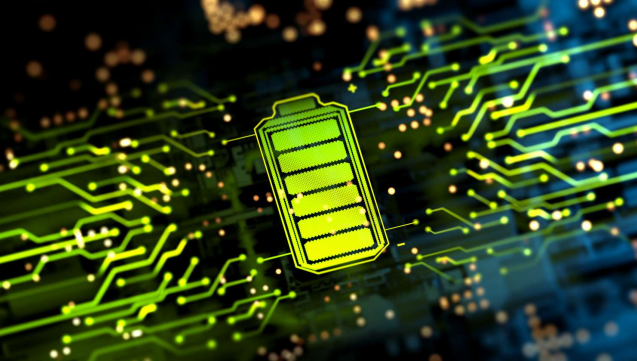Powering the Future: The Rise of the Battery Industrial Sector
In recent years, there has been a significant increase in the demand for batteries. From portable electronics to electric vehicles, batteries have become an essential part of our everyday lives. This growing demand has led to the rise of the battery industrial sector, which is now playing a crucial role in shaping the future of energy storage.
With the increasing concern for global warming and the need to reduce greenhouse gas emissions, there is a growing emphasis on renewable energy sources. However, one of the major challenges with renewable energy is the intermittent nature of sources such as solar and wind. This is where batteries come into play. They provide a reliable and efficient way to store excess energy generated during peak times and release it during periods of low production.
The battery industrial sector is not limited to just one type of battery. There are various types of batteries available, each with its own unique characteristics and applications. One of the most common types is the lithium-ion battery, which is widely used in portable electronics and electric vehicles. These batteries offer high energy density, long cycle life, and low self-discharge rates, making them ideal for applications that require a compact and lightweight power source.
In recent years, there have been significant advancements in battery technology, leading to the development of more efficient and cost-effective batteries. For instance, researchers are working on solid-state batteries, which offer higher energy density and improved safety compared to traditional lithium-ion batteries. These advancements are expected to revolutionize the battery industrial sector, making batteries more affordable and accessible to a wider range of applications.
The rise of the battery industrial sector has also created new opportunities for job growth and economic development. Battery manufacturing facilities require a skilled workforce to design, produce, and maintain batteries. As the demand for batteries continues to increase, so does the need for skilled workers in this sector. This has led to the creation of new jobs and the growth of local economies in regions where battery manufacturing facilities are located.
Furthermore, the battery industrial sector has also triggered innovation and research in related fields. Scientists and engineers are constantly exploring new materials and technologies to improve battery performance and energy storage capabilities. This has led to collaborations between universities, research institutions, and private companies, fostering a culture of innovation and technological advancement.
In addition to the environmental benefits and economic opportunities, the battery industrial sector is also driving the transition to a sustainable energy future. As more renewable energy sources are integrated into the power grid, there is a need for large-scale energy storage solutions. Batteries can play a crucial role in balancing supply and demand, stabilizing the grid, and enabling the integration of renewable energy sources on a larger scale.
However, the battery industrial sector is not without its challenges. One of the major concerns is the environmental impact of battery production and disposal. The extraction of raw materials, such as lithium, cobalt, and nickel, can have adverse effects on the environment if not managed properly. Additionally, the disposal of batteries after their end-of-life can lead to pollution if not handled through proper recycling processes.

To mitigate these challenges, there is a need for sustainable battery production and recycling practices. Governments and industry stakeholders are working together to develop regulations and standards for responsible battery manufacturing and disposal. Additionally, efforts are underway to develop new battery chemistries that rely on abundant and environmentally friendly materials.
In conclusion, the rise of the battery industrial sector is transforming the way we store and utilize energy. Batteries are becoming an indispensable component of our energy infrastructure, enabling the widespread adoption of renewable energy sources and driving the transition to a sustainable future. With ongoing advancements in battery technology and increasing investments in research and development, the future of the battery industrial sector looks promising.
-
 The battery industry is often referred to as the backbone of modern technology, as it powers numerous devices that have become integral parts of our daily lives. From smartphones to electric vehicles, batteries have revolutionized the way we live and interact with the world around us. With advancements in technology and growing concerns about environmental sustainability, the battery industry is...اقرأ أكثر
The battery industry is often referred to as the backbone of modern technology, as it powers numerous devices that have become integral parts of our daily lives. From smartphones to electric vehicles, batteries have revolutionized the way we live and interact with the world around us. With advancements in technology and growing concerns about environmental sustainability, the battery industry is...اقرأ أكثر -
 A reliable starter battery is a vital component in the efficient and effective functioning of a locomotive. The battery serves as the primary source of power for starting the locomotive's engine and is essential for ensuring smooth and consistent performance. In this article, we will explore the key role that a starter battery plays in powering up a locomotive and...اقرأ أكثر
A reliable starter battery is a vital component in the efficient and effective functioning of a locomotive. The battery serves as the primary source of power for starting the locomotive's engine and is essential for ensuring smooth and consistent performance. In this article, we will explore the key role that a starter battery plays in powering up a locomotive and...اقرأ أكثر -
 The locomotive starter battery plays a crucial role in ensuring that the engine of a train starts smoothly and efficiently. It is an essential component of the locomotive system that provides the necessary power to start the engine and keep it running. A locomotive starter battery is a lead-acid battery that is designed to handle high current loads. It...اقرأ أكثر
The locomotive starter battery plays a crucial role in ensuring that the engine of a train starts smoothly and efficiently. It is an essential component of the locomotive system that provides the necessary power to start the engine and keep it running. A locomotive starter battery is a lead-acid battery that is designed to handle high current loads. It...اقرأ أكثر -
 A starter battery is a crucial component in a vehicle's electrical system. It provides the initial power to start the engine and also helps to power other electrical components in the car. However, for a starter battery to work effectively and last longer, it needs to be well-maintained. Below are some tips on how to keep a starter battery working...اقرأ أكثر
A starter battery is a crucial component in a vehicle's electrical system. It provides the initial power to start the engine and also helps to power other electrical components in the car. However, for a starter battery to work effectively and last longer, it needs to be well-maintained. Below are some tips on how to keep a starter battery working...اقرأ أكثر -
 LiFePO4 batteries have become increasingly popular in recent years due to their numerous advantages over traditional lead-acid batteries. Here are some of the main benefits of using a LiFePO4 battery: 1. Longer lifespan: LiFePO4 batteries have a much longer lifespan than lead-acid batteries. They can last up to ten times longer, with a typical lifespan of 2,000 to 5,000...اقرأ أكثر
LiFePO4 batteries have become increasingly popular in recent years due to their numerous advantages over traditional lead-acid batteries. Here are some of the main benefits of using a LiFePO4 battery: 1. Longer lifespan: LiFePO4 batteries have a much longer lifespan than lead-acid batteries. They can last up to ten times longer, with a typical lifespan of 2,000 to 5,000...اقرأ أكثر -
 Lithium Iron Phosphate (LiFePO4) is a type of rechargeable battery that offers a number of advantages over traditional lead-acid batteries. In recent years, LiFePO4 batteries have become increasingly popular in the world of motorcycles due to their high energy density, longer lifespan, and reduced weight. One of the key benefits of using a LiFePO4 battery in a motorcycle is...اقرأ أكثر
Lithium Iron Phosphate (LiFePO4) is a type of rechargeable battery that offers a number of advantages over traditional lead-acid batteries. In recent years, LiFePO4 batteries have become increasingly popular in the world of motorcycles due to their high energy density, longer lifespan, and reduced weight. One of the key benefits of using a LiFePO4 battery in a motorcycle is...اقرأ أكثر -
 12v 100ah lithium battery has won the favor of many fields for its stability, durability and strong power. Whether it's outdoor adventures, power tools, or solar and wind power generation systems, it delivers superior performance and reliability. As an energy storage unit, it can provide long-lasting and stable power support for various equipment; as a power source, it can provide...اقرأ أكثر
12v 100ah lithium battery has won the favor of many fields for its stability, durability and strong power. Whether it's outdoor adventures, power tools, or solar and wind power generation systems, it delivers superior performance and reliability. As an energy storage unit, it can provide long-lasting and stable power support for various equipment; as a power source, it can provide...اقرأ أكثر

